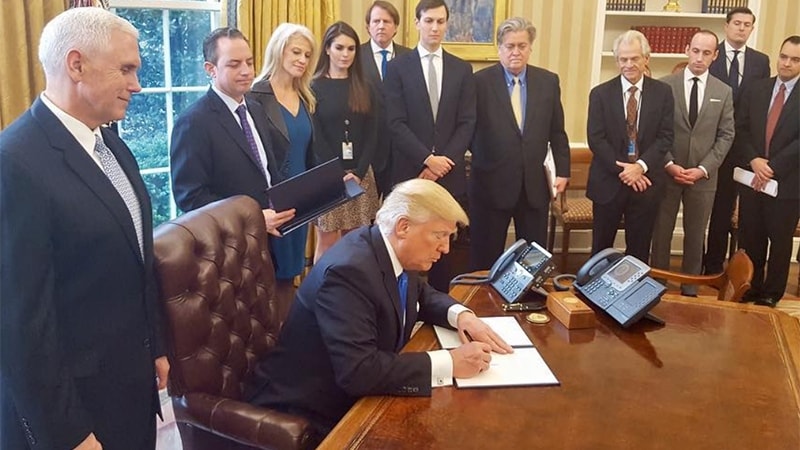
An executive order (EO) released on October 21 creates a new classification in the Federal workforce for career professionals in “policy-making” positions, with provisions that could make it easier to hire and fire employees and prevent them from joining unions.
The executive order, titled the “Executive Order on Creating Schedule F In The Excepted Service,” sets a new classification for career positions “of a confidential, policy-determining, policy-making, or policy-advocating character.” The classification would make these positions ‘at-will’, and would require agencies to inquire with the Federal Labor Relations Authority (FLRA) on whether Schedule F employees should be allowed to join collective bargaining units. The classification would not apply to members of the Senior Excepted Service.
While the scope and breadth of this new classification are still unclear, the move prompted strong backlash from Federal unions, who expressed deep concern with the implications of the EO.
“This is the most profound undermining of the civil service in our lifetimes,” said Everett Kelly, AFGE National President. “This executive order strips due process rights and protections from perhaps hundreds of thousands of Federal employees and will enable political appointees and other officials to hire and fire these workers at will.”
“Being able to place any number of existing career positions into this new Schedule F not only blurs the line between politics and the neutral competency of the career civil service, it obliterates it. We urge Congress to act swiftly to examine the development and potential impact of this executive order,” said Max Stier, president and CEO of the Partnership for Public Service, in a statement.
Federal IT positions may be some of those under examination for the new Schedule F classification.
“The primary qualification for scientists at NASA, IT and cybersecurity employees at the Department of Defense, and doctors at the Department of Veterans Affairs should be expertise in their field, not loyalty to the president,” said Bob Corsi, interim president of the Senior Executives Association, in a statement.
The Trump Administration’s rationale for the EO matches the administration’s previous rhetoric around the need to streamline the Federal personnel system.
“This action will enhance accountability for Federal employees who are responsible for making policy decisions that significantly affect the American people,” the White House press office stated in a fact sheet. “Agencies should be given greater flexibility to address poor performance in these positions.”
A looming factor behind this policy change is the election. The EO calls for preliminary reviews to be completed within 90 days – a day before Inauguration Day – but a complete review within 210 days, which falls after the inauguration.
“This is a bad idea and it was done in a bad way. What happens next is something that the election will be relevant for,” said Stier in an interview with the Washington Post.
